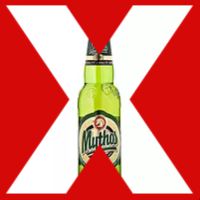European music is a vast and diverse tapestry that reflects the rich cultural heritage and historical evolution of the continent. Spanning centuries and encompassing a multitude of styles, European music has been shaped by various influences, from classical compositions to folk traditions, and from avant-garde experiments to contemporary pop sensations.
Classical music stands as one of the most enduring and influential genres within European music. Originating in the Western church during the Middle Ages, it evolved through distinct periods such as the Renaissance, Baroque, Classical, Romantic, and Modern eras. Composers like Johann Sebastian Bach, Wolfgang Amadeus Mozart, Ludwig van Beethoven, and Pyotr Ilyich Tchaikovsky have left indelible marks on the genre with their symphonies, concertos, operas, and chamber music. The intricate harmonies, complex structures, and emotional depth of classical compositions continue to inspire musicians and audiences worldwide.
Folk music is another cornerstone of European musical heritage, deeply rooted in regional traditions and oral histories. Each country boasts its unique folk styles, instruments, and dances. For instance, Irish traditional music features lively jigs and reels played on fiddles, tin whistles, and bodhráns, while Spanish flamenco combines passionate guitar playing with intricate footwork and vocal improvisation. Scandinavian folk music often incorporates the nyckelharpa and hardingfele, creating ethereal melodies that echo through ancient landscapes. These traditional sounds have also influenced modern genres, blending old and new to create fresh, innovative music.
Operatic traditions are particularly strong in Italy, Germany, and France, with compositions by Giuseppe Verdi, Richard Wagner, and Georges Bizet standing out as masterpieces. Opera combines dramatic storytelling with powerful vocal performances, often featuring elaborate orchestral accompaniment. The grandeur of opera houses and the spectacle of live performances have made this genre a cultural cornerstone across Europe.
In the 20th century, European music saw significant innovations and movements. Jazz, though originating in America, found fertile ground in Europe, particularly in France and Germany, where musicians like Django Reinhardt and Kurt Weill made substantial contributions. The avant-garde movement, led by composers such as Arnold Schoenberg and Igor Stravinsky, pushed the boundaries of traditional harmony and structure, introducing atonality and serialism.
The mid-20th century witnessed the rise of rock and pop music, which quickly became dominant genres across Europe. British bands like The Beatles and The Rolling Stones revolutionized popular music with their innovative songwriting and performances. Meanwhile, German electronic music pioneers such as Kraftwerk and Tangerine Dream laid the foundations for techno and ambient music. In France, artists like Edith Piaf and Serge Gainsbourg blended traditional chanson with modern sensibilities, creating timeless classics.
The late 20th and early 21st centuries have seen a proliferation of subgenres within electronic music, including house, trance, and dubstep, with European cities like Berlin, London, and Amsterdam becoming global hubs for club culture. Artists such as David Guetta, The Prodigy, and Daft Punk have achieved international acclaim, showcasing the versatility and innovation of European electronic music.
Contemporary European music continues to evolve, drawing from a wide range of influences and blending traditional and modern elements. From the folk-infused sounds of Scandinavian artists like Röyksopp and Lykke Li to the experimental electronica of German producers such as Modeselektor and Apparat, Europe remains at the forefront of musical innovation.
In addition to these genres, European music also encompasses a rich tradition of film scores, which have contributed significantly to cinematic storytelling. Composers like Ennio Morricone, Hans Zimmer, and Max Richter have created iconic soundtracks that enhance the emotional impact of films, often becoming as memorable as the movies themselves.
European music festivals are another vital aspect of the continent's musical landscape. Events like Glastonbury in the UK, Tomorrowland in Belgium, and Roskilde in Denmark attract millions of visitors each year, offering a diverse lineup of artists across various genres. These festivals not only celebrate music but also foster cultural exchange and community building.
In conclusion, European music is a dynamic and multifaceted genre that reflects the continent's rich history, cultural diversity, and ongoing innovation. From classical symphonies to folk traditions, from operatic dramas to electronic beats, European music continues to inspire and captivate audiences around the world. Its enduring influence and adaptability ensure that it will remain a vital force in global musical culture for generations to come.
 1.2k
Russia, Moscow European music
1.2k
Russia, Moscow European music 598
598
 1
Greece, Trikala European music
1
Greece, Trikala European music Macedonia European music 128 kbps MP3
Macedonia European music 128 kbps MP3











